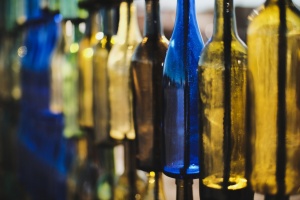German wine producers forced to postpone bottling due to glass shortage

A shortage of glass in Germany has meant that some German wine producers are being forced to postpone their bottling operations until they can source futher suppliers.
Oliver Schell who owns a family winery in the Ahr region of Germany is just one producer who can’t get his hands on sufficient quantities of the schlegelflaschen, the long bottles made of white glass that he normally uses for his wine. This is despite being ready to fill his first bottles with the 2018 vintage last week.
"We have the wine ready in the cellar, but we can't get it to our clients," he told Deutsche Welle, adding that in the ten years he’s been in the wine business this is the first time he has faced this particular problem.
The reasons for the shortage are manifold. Firstly, Germany, along with Europe enjoyed a bumper harvest last year, with volumes up by around 20% putting pressure on supplies and creating unprecedented demand. In Italy an additional 14% more grapes were harvested in 2018, and 17% more in France, said Ernst Ernst Büscher from the German Wine Institute.
“It means 20 to 27 million hectares more than in 2017, so there is a higher demand for wine bottles all across Europe,” he confirmed.
In addition, the ongoing consolidation of the bottling industry has meant that there are fewer players in the market than was once the case. Fewer, larger international glassmakers now dominate the scene, and they tend to be interested in producing only one specific type of bottle, added Büscher In particularly short supply are the one litre green bottles, as well as bottles used for white wine and rose, according to Andreas Kohl, the spokesman for the Farmers and Winegrowers’ Association in Rhineland-Palatinate where there are 4,900 wineries bottling wine
There are now ten large glass producers in Germany operating 31 sites, and they generate around a fifth of the whole glass industry revenue.
“Production in a glass manufactory is very rigid,” said Nikolaus Wiegand, managing director of the Wiegand-Glass manufacturing company. “It operates throughout the year in a 24/7 mode. When there is considerable additional demand, it cannot simply be increasing working hours, because working more is not possible.“
He said that this year the company had received a higher number of orders than usual but it was impossible to satisfy everyone, with a maximum capacity of 2.8 billion bottles a year.
A third factor contributing to the glass shortage is that the demand for glass products has increased considerably in recent year, and not just wine producers, as consumers become more environmentally aware and move away from plastic packaging to glass.
Soft drinks giant Coca Cola in the Mannheim area of Germany has recently switched from the use of PET bottles to glass, with a requirement of some 50,000 to 60,000 bottles an hour, putting a huge strain on limited supplies
